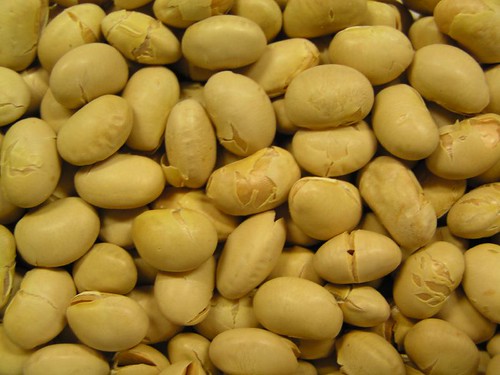Swine Flu and Avoiding the Cytokine Storm: What to Eat and What Not to Eat?
The scary connection between the 1918 flu pandemic (Spanish flu), the avian influenza (bird flu) and the swine influenza (pig flu) is that they all strike hardest those with healthy immune systems.
Usually, when people die of influenza, it's because they're old or their immune systems are compromised in other ways. Not so with the swine flu. As with the other two pandemics, death rates from swine flu have been highest among the 15-40 age group. Healthy young people seem to be in an especially big danger of dying from the influenza.
Swine flu, inflammation and the cytokine storm
The reason behind the deaths seems to be an exaggerated immune response, known as a cytokine storm. Since the body doesn't know what to do with the virus, it triggers an all-out release of inflammatory mediators. The reaction then becomes out of control, and the feedback loop ends up killing the patient (link).
The cytokine storm is the reason why the usual recipe for good health doesn't apply in the case of swine flu. Both inflammatory and anti-inflammatory cytokines have their uses in fighting off infection, and inhibiting inflammation is considered a good way to promote health in general. However, increasing anti-inflammatory cytokines during a cytokine storm is a bad idea.
So how do we shield ourselves from a cytokine storm? No one is really sure at this point. In a cytokine storm from avian influenza, the main cytokines responsible are TNF-alpha, IL-6 and IFN-gamma (link, link), with IP-10 and IFN-beta also being expressed more than usual (link). Reducing the levels of these and other cytokines could, at least in theory, be helpful. There is also some evidence that angiontensin converting enzyme (ACE) inhibitors might help in mediating cytokine storms (link, link, link), though we don't know for certain.
While taking cytokine and ACE inhibitors for swine influenza is currently only a theory, I nevertheless find it an interesting one. Specifically, I think a look into how "health foods" affect cytokines is useful, since conventional wisdom may not apply here due to reasons mentioned earlier. Below, we'll take a look at some natural cytokine and ACE inhibitors and also discuss which health foods may actually be harmful.
ACE inhibitors from natural sources
Procyanidins and flavanols have an inhibitory effect on angiotensin converting enzyme (link). They are found in many plants, such as apples, cocoa, cinnamon, berries and tea. Chokeberries have the highest concentration of procyanidins.
In one study, procyanidins and epigallocatechin were effective while catechin, epicatechin, gallic acid, chlorogenic acid, caffeic acid, quercetin, kaempferol and resveratrol at similar concentrations were ineffective (link). Accordingly, wine, chocolate and tea were all found to inhibit ACE activity, with red wine being more effective than white wine, green tea being more effective than black tea.
A word of caution: cocoa, while inhibiting ACE activity, may increase the secretion of TNF-alpha (link) and IL-1 and IL-4 expression (link), which could be bad news in the case of a cytokine storm. Chocolate may therefore not be a good idea if trying to reduce cytokines.
Quercetin, while ineffective in the study mentioned above, has been shown to have an inhibitory effect on the angiotensin converting enzyme, similarly to captopril (link), while also reducing blood pressure (link) and the angiotensin-induced production of IL-6 (link).
Another study found that both green tea and black tea inhibited ACE activity dose-dependently (link). In addition, all four catechins tested (including epicatechin) were effective. Rooibos tea, however, had no effect.
Pomegranate juice seems to be very effective in inhibiting ACE activity in vitro and in vivo (link). Hypertensive patients given 50 ml of pomegranate juice for two weeks had a 36% decrease in ACE activity and a 5% reduction in systolic blood pressure.
Cytokine inhibitors from natural sources
Epigallocatechin gallate (EGCG) inhibits the production of TNF-alpha, IL-6 and IL-8 (link). The best source of EGCG is green tea. Black tea is not without its merits either, though, as the theaflavins in black tea appear to reduce levels of IL-1 and IL-6 (link).
Several compounds in garlic appear to inhibit cytokines. Ajoene partially inhibits the production of TNF-alpha (link). Allicin inhibits IL-1, IL-8 and IP-10 (link), while alliin increases IL-1 and TNF-alpha (link). Crushing or chopping garlic causes alliin to be converted into allicin, while cooking garlic decreases allicin (link). Therefore, for the purposes of reducing cytokines, it's better to crush garlic and eat it raw.
Chronic garlic administration decreases myocardial TNF-alpha expression in rats (link). One study showed that garlic may increase IL-10 (link), and another one showed it increased IL-4 while reducing IFN-gamma (link). However, in humans, garlic powder extract has been shown to reduce IL-1 and TNF-alpha with no effect on IL-10 (link). The ratio of alliin and allicin may be important here as well.
When mice infected with influenza were fed vitamin E, they had significantly lower levels of IL-1beta, IL-6 and TNF-alpha (link, link). A relatively good natural source of vitamin E is red palm oil, which has been shown to reduce TNF in humans (link).
Fats, depending on their omega-3/omega-6 ratio and whether they're saturated or unsaturated, may play an important part in cytokine production. In rats, fish oil (which is high in omega-3) was shown to reduce levels of IL-1 and IL-6 (link). In humans, 4 weeks administration of flaxseed oil followed by 4 weeks of fish oil was shown to inhibit TNF-alpha and IL-1 in healthy humans, with fish oil being more effective (link).
Not all the data is positive, unfortunately. A long-term study comparing various doses of fish oil in humans concluded that supplementation for 1 year did not affect cytokine production (link). In another study, olive oil, coconut oil and fish oil all reduced IL-1 production in rats during the first 4 weeks of administration (link). However, after 4 weeks, olive oil and fish oil increased IL-6 production, and after 8 weeks, olive oil began to increase IL-1 production as well.
While resveratrol was found in the previously mentioned study to be ineffective for inhibiting ACE activity, it appears to suppress the expression of TNF-alpha, IL-6 and IL-8 (link, link). Resveratrol is found in red wine, red grapes and peanuts. Red wine has been shown to reduce levels of TNF-alpha, IL-6 and IL-8 in diabetics (link), although one study found no effect on cytokines from red wine (link) and another one found an increase in IL-6 (link). While those with peanut allergy should obviously avoid peanuts, it is unclear how peanuts affect cytokine levels in non-allergic people.
Quercetin decreases the expression of TNF-alpha, IL-6 and IL-8 (link, link). Food sources of quercetin include green tea, capers, fennel, onions, cocoa, kale and apples with skins (link, link). Compared to supplements, the quercetin content of foods is quite low, however.
Curcumin appears to reduce levels of TNF-alpha along with IL-6 and IL-8 (link, link, link). The main food source of curcumin is the spice turmeric. While the bioavailability of curcumin is very low, heating (link) and the addition of piperine greatly enhances its absorption (link). Piperine, which is found in black peppers, also inhibits inhibits IL-1, IL-6 and TNF-alpha (link).
One study showed that 2,000 IU of vitamin D3 given for nine months resulted in lower TNF-alpha and higher IL-10 levels than the control group (link). Vitamin D3 seems to increase IL-4 but decrease TNF-alpha, INF-gamma and IL-6 (link, link). On the other hand, a vitamin D deficiency reduced IL-1 levels, halved TNF levels and reduced IL-6 levels five-to-tenfold in mice (link). The Vitamin D Council newsletter covers this topic extensively (link); in short, they seem to advocate either not taking any vitamin D3 or taking at least 5,000 IU. Anything in between is potentially harmful for cytokine storms.
Summary
For the purposes of inhibiting ACE and reducing cytokines, the following foods and compounds seem to be the best choices:
- Green tea (ACE inhibitor, reduces cytokines)
- Black tea (ACE inhibitor, reduces cytokines)
- Quercetin (possible ACE inhibitor, reduces cytokines)
- Pomegranate juice (ACE inhibitor)
- Red wine (ACE inhibitor)
- Turmeric (reduces cytokines)
- Black pepper (reduces cytokines)
- Raw crushed garlic (reduces cytokines)
- Red palm oil (reduces cytokines)
- Vitamin E (reduces cytokines)
- Coconut oil (reduces cytokines)
- Olive oil (may increase cytokines)
- Fish oil (may increase cytokines)
- Chocolate (ACE inhibitor, increases cytokines)
That's it for this week, I'm off for a holiday (hopefully without swine flu), so no updates for a few weeks. For more information on cytokines and inflammation, see these posts:
Examining Possible Causes for Slower Wound Healing
Green Tea Protects from Arthritis in Rats
Green Tea Protects Cartilage from Arthritis in Vitro
Intermittent Fasting with a Condensed Eating Window – Part III: Fasting Blood Glucose, Cortisol & Conclusion
Read More......








Lähettänyt JLL klo 10:23 PM 4 kommenttia
Tunnisteet: inflammation, tea






